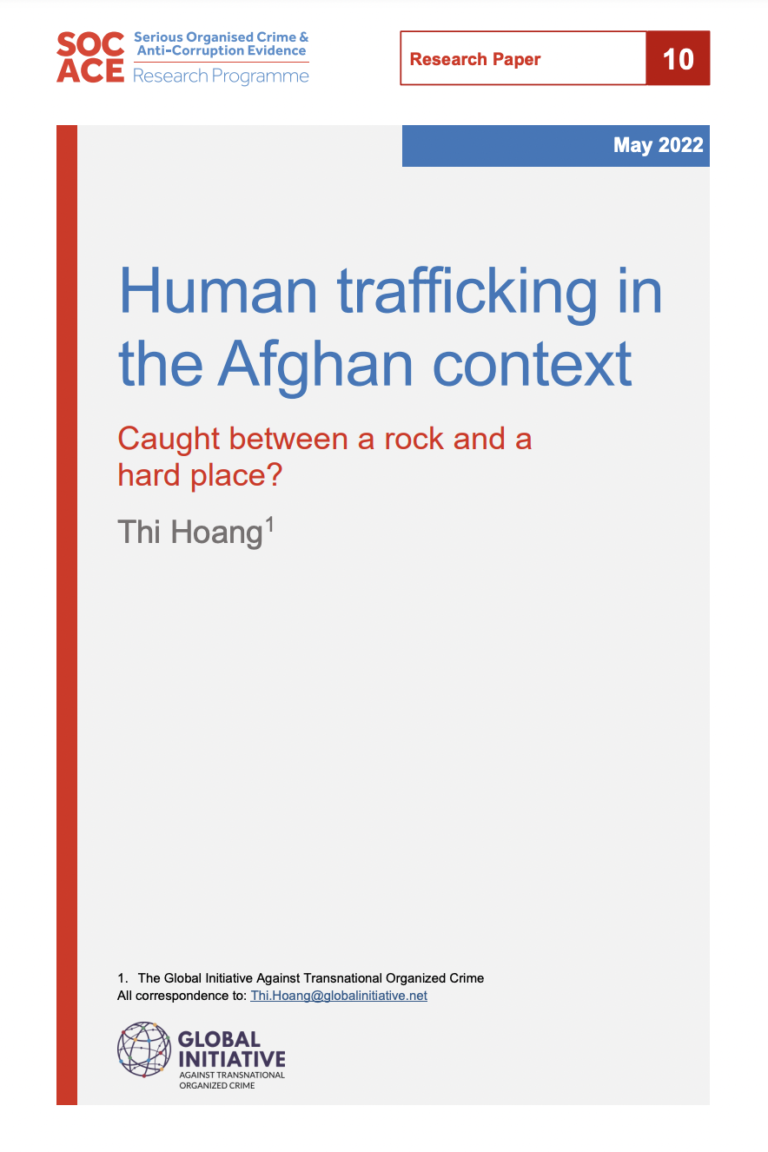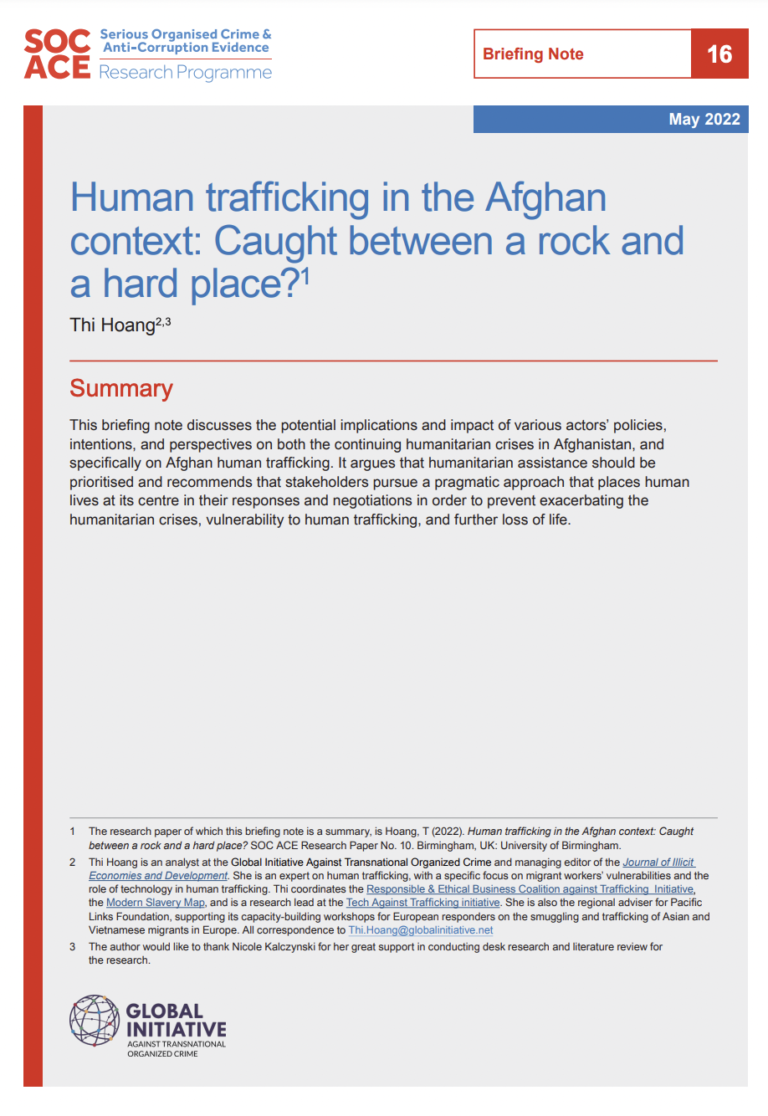Author: Thi Hoang, GI-TOC
Decades of wars and internal conflicts have driven generations and millions of Afghan families into impoverishment, illiteracy, unemployment, and displacement, rendering them unable to provide for their household members, particularly children. Political instability and conflicts have increased human suffering and vulnerabilities, eroded community resilience, stripped people of legitimate and viable economic options, opportunities, and livelihoods, as well as amplifying (in several cases also creating new forms of) human trafficking activities and practices.
Drawing on existing academic and grey literatures, expert interviews and media reports, this paper first provides a brief overview of human trafficking situations, forms, their widespread reach and practices in the Afghan context before and after the Taliban’s takeover in August 2021. Second, it discusses the potential implications and impact of various actors’ policies, intentions and perspectives both on the humanitarian crises in Afghanistan, and on human trafficking in particular. It argues for prioritising humanitarian assistance, and recommends that stakeholders pursue a pragmatic approach to responses and negotiations that puts human lives at its centre, to prevent worsening the humanitarian crises, exacerbating vulnerability to human trafficking, and further loss of life.
____
The Serious Organised Crime & Anti-Corruption Evidence (SOC ACE) research programme aims to help unlock the black box of political will for tackling organised crime, transnational corruption, kleptocracy and illicit finance through research that informs politically feasible, technically sound interventions and strategies.
For more papers and briefs on illicit markets in conflict contexts, please see the SOC ACE website: https://www.birmingham.ac.uk/schools/government/departments/international-development/research/soc-ace/index.aspx.


